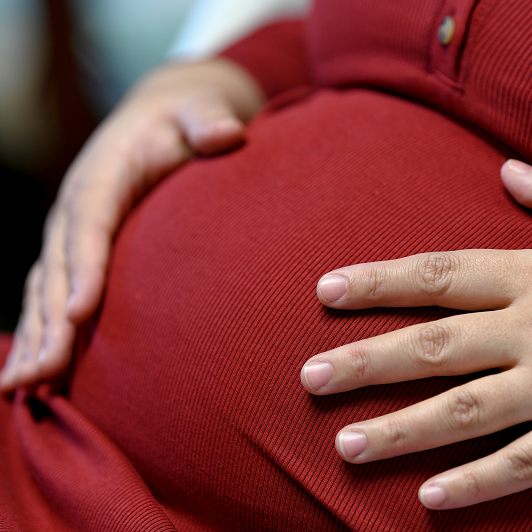What Happens to Your Hormones After Birth?

March 02, 2023
The hormone shift that occurs during pregnancy is well-known and has been highlighted in pop culture. But hormones are less talked about post-delivery.
What happens to a woman’s hormones after birth, and how long does it take for them to return to pre-pregnancy levels? Our experts weigh in.
Hormonal Changes After Birth
“New moms go through so many different hormonal changes immediately after birth,” says Judi R. Gerardis, M.D. an OB/GYN with Hackensack University Medical Center.
- Estrogen and progesterone decrease, which can contribute to the “baby blues.”
- Oxytocin increases, which helps the uterus contract and prevent excessive postpartum bleeding (this may also be linked to maternal-baby bonding).
- Prolactin—the hormone responsible for lactation—increases.
“These drastic shifts may cause shivering after delivery, and women may begin to get increased cramping. Some women experience hot flashes,” says Lizabeth A. Kopp, M.D., an OB/GYN at Hackensack.
When Hormones Return to Pre-Pregnancy Levels
The return to pre-pregnancy hormone levels can vary greatly, but generally hormones will normalize within three to six months.
If you are breastfeeding, as you wean from it, your prolactin and oxytocin levels will drop—potentially leaving you feeling sad, anxious or irritable. These are usually short-lived, but a slow approach to weaning may help reduce adverse effects.
“However, with breastfeeding, hormonal change is very individualized,” says Dr. Gerardis, adding that this is due to a variety of factors, such as how often you breastfeed.
Mitigating Effects of Post-pregnancy Hormonal Changes
Dr. Gerardis and Dr. Kopp offer a few tips for making the transition a bit easier:
- Try to avoid sugar cravings, and focus instead on eating plenty of healthy fats (extra-virgin olive oil and avocados, for example) and healthy proteins (chicken and fish, for example).
- Get as much sleep as possible. Admittedly, sleep will be in short supply, but pumping can allow a partner to assist with the night feedings.
Let someone help you. “Just having someone give you a break—even a half an hour to yourself— can help you feel somewhat back to normal,” Dr. Kopp says. - Exercise can increase endorphins, which can help with your mood, and can help regulate stress hormones. Keep in mind that women who have just given birth are not advised to exercise heavily for six to eight weeks, so be sure to talk with your doctor about easing back into exercise.
- Know that the transition is perfectly normal. Understanding what to expect can help you manage the hormonal shifts.
When “Baby Blues” Are More Serious
While hormonal changes may involve feeling blue, it’s important to recognize when it might be something more serious. Signs of postpartum depression may include:
- An inability to perform basic activities of daily living
- Feeling like you always want to be by yourself
- Anxiety for no apparent reason
- Feeling totally overwhelmed
- Crying all the time
If you are experiencing these signs, talk to your doctor about what you are feeling and about treatment options—even reaching out to a trusted family member or friend can be a good start. And if you ever consider harming yourself or your baby, seek help immediately—either from a health care provider or even by calling 911 in an emergency.
Postpartum depression is more common in women who have a history of depression. “If you have a history of depression, having a game plan in place during pregnancy is key,” Dr. Gerardis says.
Adds Dr. Kopp: “Talk with your doctor about continuing or starting medication, and keep up your appointments with your mental health provider.”
Next Steps & Resources:
- Meet our sources: Judi R. Gerardis, M.D., and Lizabeth A. Kopp, M.D.
- To make an appointment with an OB/GYN near you, call 800-822-8905 or visit our website.
The material provided through HealthU is intended to be used as general information only and should not replace the advice of your physician. Always consult your physician for individual care.






